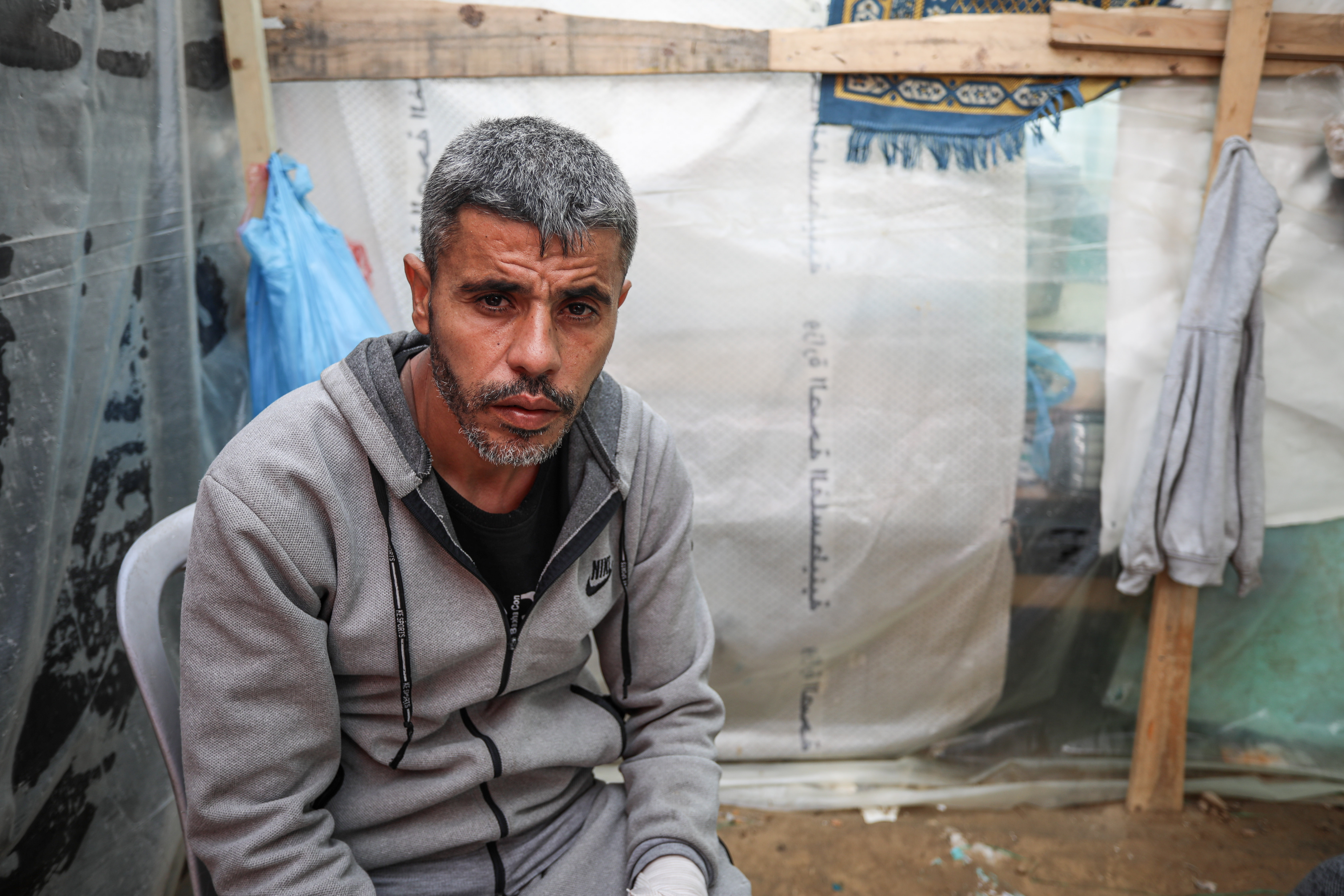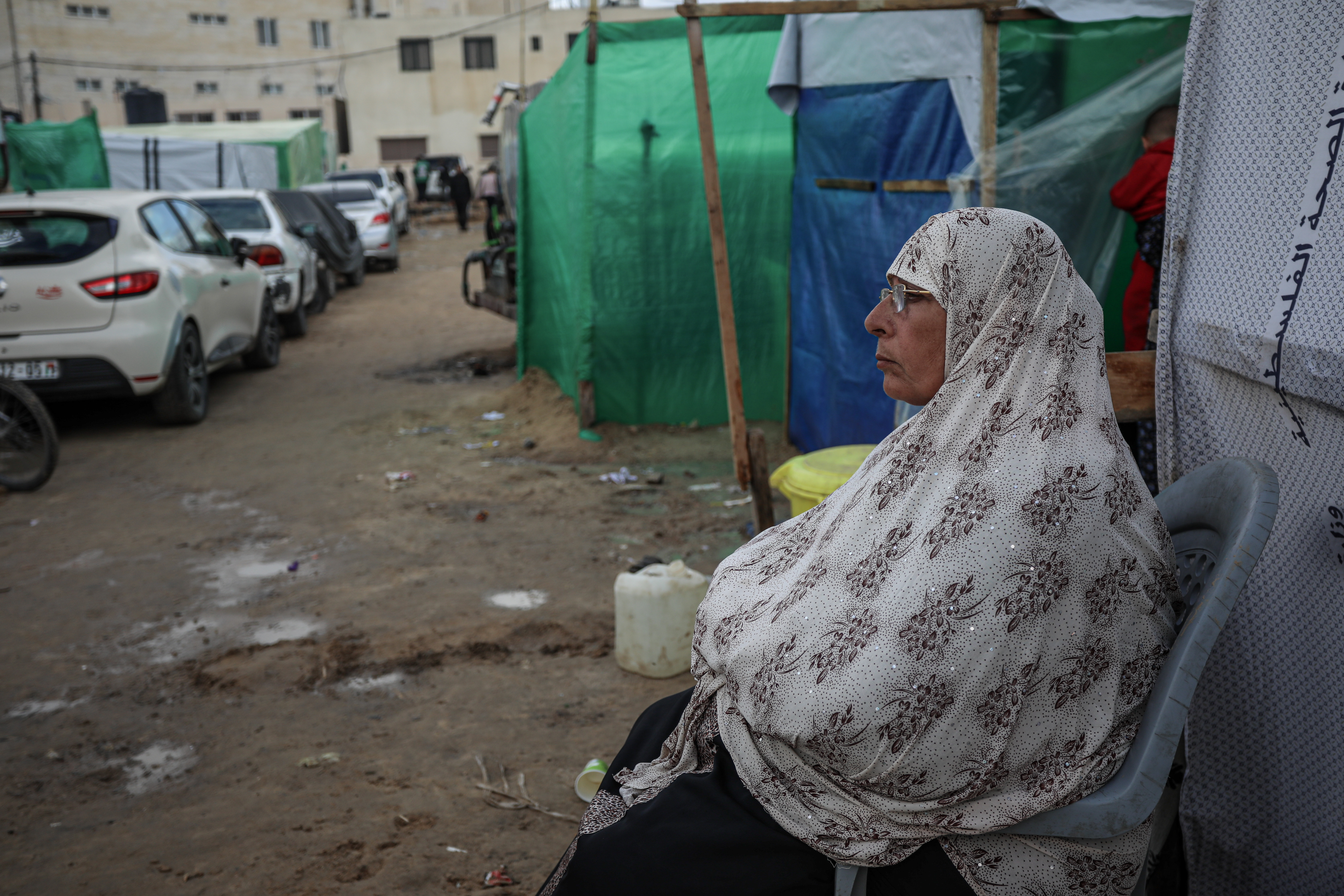
Deir el-Balah, Gaza Strip – Ayman Harb, a father of three, stayed with his family Gaza City neighborhood Although Shujayea had been besieged for more than a month by Israeli bombs and tanks, the enclave’s largest urban center had been destroyed.
Last week, before the four-day humanitarian moratorium came into effect, the family decided they had to flee. One of his sons has cerebral palsy and needs an oxygen tank, and Israeli soldiers threatened to shoot Harb if he didn’t give up the oxygen.
Now, in central Gaza, Harb has only one dream: to turn the truce into a full ceasefire that will allow him and his family to return home.
As the four-day truce drew to a close on Monday evening, Qatar, which played a key role in mediating the talks that led to the cessation of hostilities, announced that the ceasefire had been extended for another two days.
For families in Gaza, that short break It also serves to underline the suffering and humiliation of the enclave’s 2.3 million inhabitants who have been attacked since October 7. The Palestinians are demanding a permanent ceasefire, stressing that their priority is to return to their homes, even if they are heavily destroyed. bombing in the last month and a half.
The truce that began on Friday has resulted in the release of Israeli civilian captives held by Hamas in exchange for the release of Palestinian women and children held by Israel.
The sky over the Gaza Strip has been silenced by the constant sound of Israeli drones and warplanes. But it has done little to ease the collective trauma of the people of Gaza. According to the United Nations, 1.6 million people have been displaced from their homes, and many have had to flee to the south of the strip. Some families who tried to return to the north during the ceasefire were shot by Israeli snipers.
Others have been forced to live in what they describe as ‘shame’.

“I have been staying here for a week in a tent in the area of Al-Aqsa Martyrs Hospital, next to the ambulances,” said Harb, 41. “There are about 20 of us in a tent, but I had to send my wife and my other two children to stay with a relative after the rain soaked our tent this morning.”
“Yes, the bombings have stopped, but we need a truce that will bring us back to our homes,” he added. “Otherwise, it’s not worth it at all. I’d rather go back to my house and die there than stay here in a tent living in shame, forced to rely on people for the basic necessities of life.’
Harb said his family never had to beg in their lives. Now medicine, food and water are desperate.
“We don’t want war. We want to live our dignity intact in our homes,” said Badr’s 20-year-old cousin.
Imm Shadi al-Taher, 63, a mother of 10, was displaced from her home in Tall az-Zaatar in Gaza City three weeks ago.

He has also been staying with 25 members of his family in a tent in the hospital area.
“We had our pride and our dignity, but look at the situation we are in now, this lack and nobody wants to help us or think about us,” he said.
He recognized it “great relief” He notes that his grandchildren are calmer because they don’t hear drones, warplanes or artillery bombs, but he can’t bear to be away from the house they destroyed.
“I’m ready to live in a tent but in the ruins of my house, where I don’t have to ask anyone for help,” he said. “I want to go back to bury my brothers and sisters who are still under the ruins of the destroyed houses.”
According to Gaza’s government media office, at least 6,800 people are missing and presumed dead under the rubble. In addition to the 14,854 Palestinians killed since October 7, most of them women and children.

For Noor Saadeh, a 23-year-old mother of two who was displaced from her home in Gaza City a month ago, the truce is not enough.
“What good is a truce if we can’t go back to our homes?” he asked. “My son keeps telling me that he misses his friends at preschool. We want to get our old life back.”
He is worried about the onset of winter because he and his family fled while it was still warm and have no way of getting back to their home.
“I had to ask people for at least the right clothes for the kids,” she said. “We didn’t think we’d be here this long.”
